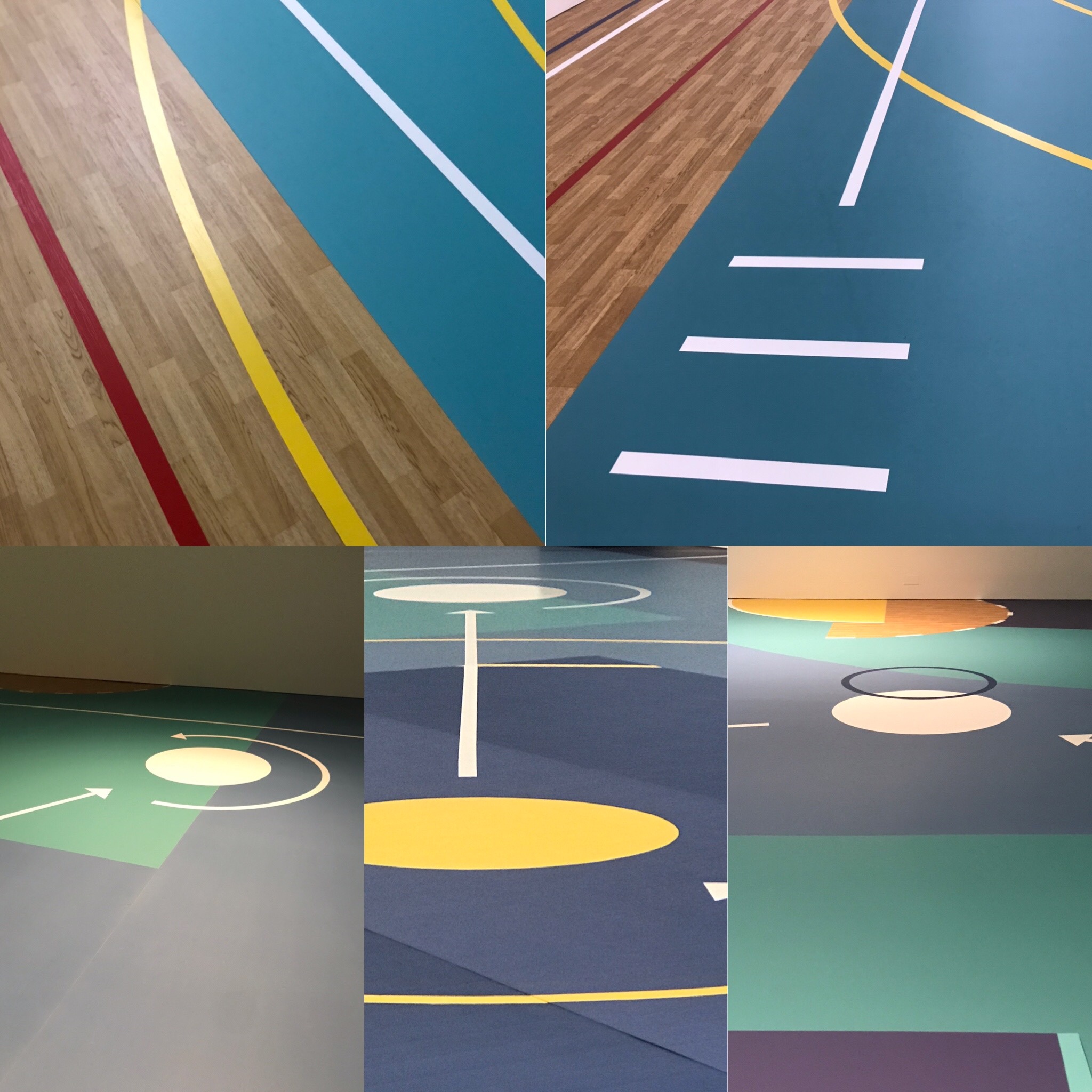A Fallow Time: Strength in Isolation

That which is unseen is forcing us to remain vigilant and contained. Some are dutifully following regulations, others selfishly panic buying. The vulnerable such as those with underlying health conditions, the elderly or those with disabilities such as myself are justifiably anxious and scared.
While the world reacts to the effects of Covid 19, we should not be forced to use the time for creativity but a reframe the space isolation inhabits.
Strength is often portrayed as a physical triumph over adversity, challenging a commonly held convention and testing ourselves to the limit. But what happens when we break? How do we heal and centre?
In Phoebe Davies work Points of Rupture rehabilitation and strengthening over time are depicted in three distinct motifs. Immersive soundscape, visual cues relating to sport drills and documentary film chart the journey of her own recovery and the collective narratives of empowerment and restoration.
Strip lights are illuminated in sync with the sound of effort and breath as the vastness of the space resonates to the beat of Phoebe’s therapeutic exertion. The effect is one of being drawn into a trance, sharing in a collective space of healing. The syncopated rhythms of the basketball hitting the floor echoed in the motifs on the floor of the space. A sport hall disjointed. A jarring aide memoir to a place now out of reach. Yearning to return.
Speaking to Phoebe about her process references are made to her upbringing and times on the farm, areas of land would be left to go fallow in order for the nutrients to return to the soil. This process of informed desolation is something I asked about in light of the current climate as a way to redefine the isolation we are feeling.
Therapy has been my saviour. Without it I couldn’t have worked my way through the trauma I experienced when I was younger or have found the tools to process the anxiety I occasionally face. This time of isolation is difficult but it is through finding ways to remain creative and engaging with fellow creative people that I was able to claw my way out of a dark place.
One such time was when I felt completely useless. I thought I had found my voice with art criticism but my disability had gotten the better of me. Weak, delirious and feeling completely alone Connor Shields happened to message me about a blog piece I’d written about Phlegm’s Mausoleum of the Giants. All the voices in my head telling me I was useless fell silent for a moment. After negotiating a visit to his exhibition at Yorkshire sculpture park and another piece of writing later we remain colleagues.

Without solitude none of this would have happened. It is out of these unexpected connections that support networks blossom. I spoke to Connor about how to maintain networks and how they can begin from the most unexpected places.
“I came across Steven’s blog after we matched on Tinder and there was a link in their profile. I reached out to them after reading their article on Phlegm in Sheffield. Steven wrote about their industrial upbringing and a sense of place, similar to themes in my own practice. They write through the perspective of a queer person and I was keen to work with them, considering these simialrities in our backgorunds. Tinder isn’t the place you would expect to come into contact with someone in such a way, but it definitely opened my eyes to the fact that you can create connections in even the most unexpected places. Through discussing the work when they came to visit my show, they unearthed ideas that I hadn’t perhaps considered previously. This critical conversation is something that is crucial for the progression of practice.
In my everyday life I don’t usually find myself in too many moments of solitude, particularly to the degree it is at right now due to the current state that the world is in. I rarely give myself time off, and when I do I always find that my brain is still in ‘work mode’ and I am thinking of the next thing coming up. I am realising that sometimes solitude is important, particularly for mental wellbeing. It’s important to take a break and reflect. I think it is potentially what the world needs right now - a rest. I do wonder though, while people are taking this time to heal and focus on themselves, will things go back to how they were when this pandemic is behind us? Or will the world learn from this?”
It is difficult to be kind to yourself. It takes practice and the right people around you to bring you out of the darkness. For a long time I felt a safe space needed to be four walls a ceiling and a floor but over time it soon became apparent that the people you encounter and the bonds you forge are just as supportive.
